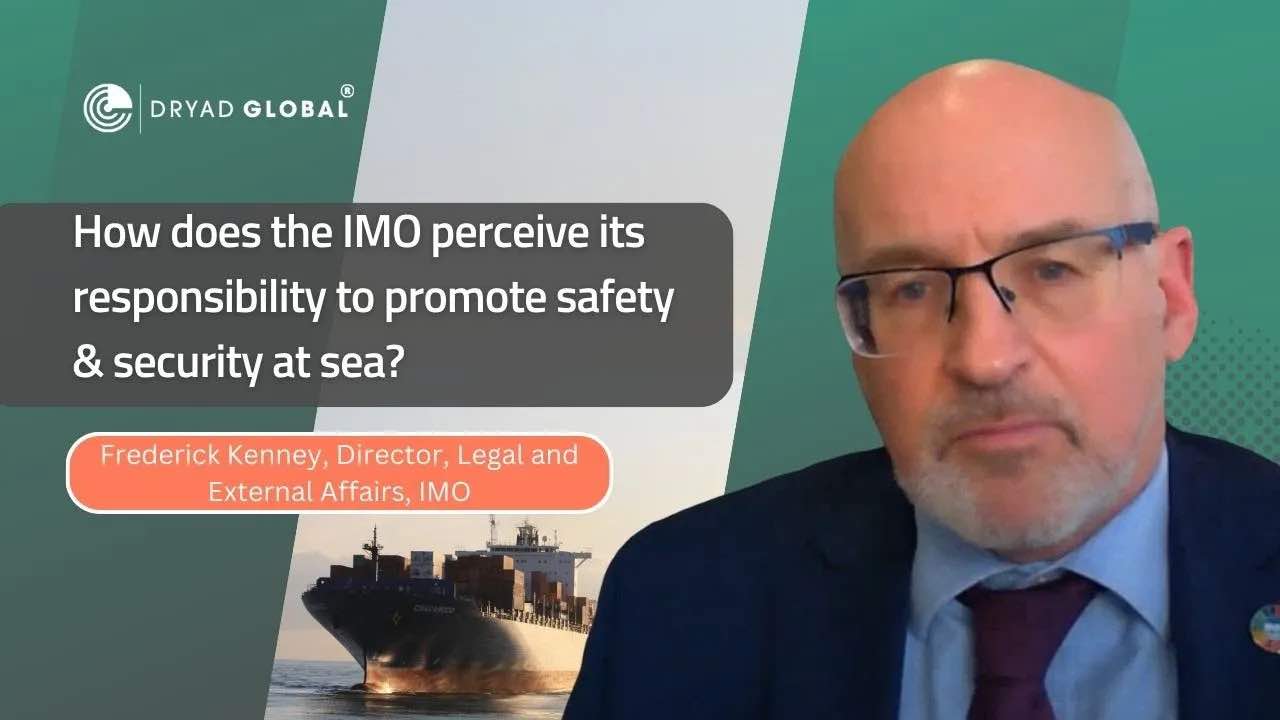Dealing with trade backlogs, changing regulations, evolving piracy and complex regional sensitivities, the International Maritime Organisation IMO strives to maintain and improve safety at sea by developing international regulations applicable to all shipping nations.
Frederick Kenney is the IMO’s Director of Legal Affairs and External Regulations. A retired US rear admiral, Mr Kenney was formerly the Judge Advocate General of the US Coast Guard. He advises the IMO Secretary‑General on IMO legal issues (particularly treaty and maritime law), also managing IMO’s role as depositary for its 53 multilateral conventions.
Dryad Global spoke with Mr Kenney about the IMO’s maritime safety and security concerns in a drastically changed geopolitical landscape - and possible related legislative changes.
With multiple unprecedented complex geopolitical events unfolding globally, how does the IMO perceive its responsibility to promote safety and security at sea?
Since inception, the IMO implemented a new version of the International Convention for the Safety of Life at Sea (SOLAS) alongside international maritime conventions and codes relating to search and rescue, traffic and transport. The IMO makes sea trade and travel as safe and secure as possible by managing and mitigating threats via regulations and guidance. This developed significantly with the adoption of the ISPS code in 2002. Without its people, the industry doesn’t function. Therefore seafarer safety and regional preparedness are the IMO’s primary concern.
Following 11 September 2001, numerous incidents of misconduct exposed maritime vulnerabilities - making the ISPS Code vital to the industry. How effective has ISPS been in addressing global security issues since then?
The ISPS Code created a brand-new security regime, to be implemented by its Member States. Applicable to cargo and passenger ships over 500 gross tonnage, mobile offshore drilling units, port facilities serving international ships, and high-speed vessels. Concurrent Best Management Practices (BMP) evolved in the shipping industry, outlining appropriate procedures for responding to acts or attempted acts of maritime piracy and armed robbery in specific regions. These were supported and propagated by the IMO. Although it has never been amended, the Code has provided a stable regime that has been effectively implemented, with results that continue to develop and improve.
Cyber security is a growing issue across the maritime industry, affecting shipping companies, cruise lines, large yachts, and their supporting businesses - alongside various continually evolving geopolitical threats.
The IMO saw that ship-based informational and operational technology can be hacked as easily as onshore systems, subsequently implementing cybersecurity guidance in 2021. In doing so, they sought to mitigate potential threats to ships, ports and wider maritime networks by raising industry awareness of and forming protocols for handling such risks.
While no plans exist to significantly alter ISPS Codes, the IMO are focused on specific areas within their security framework, including cyber threats.






